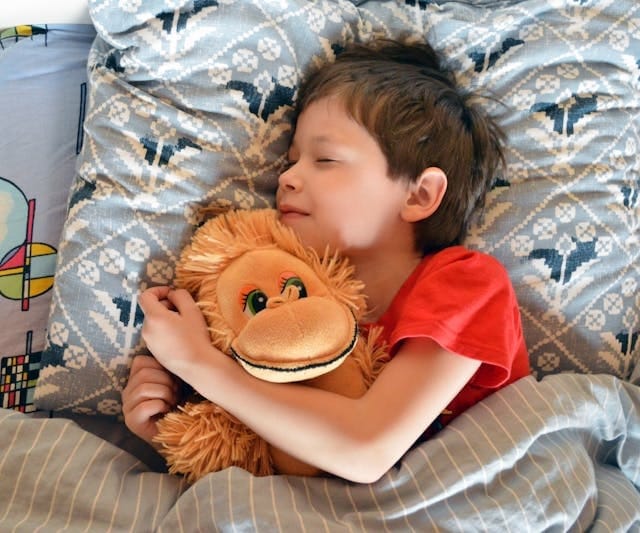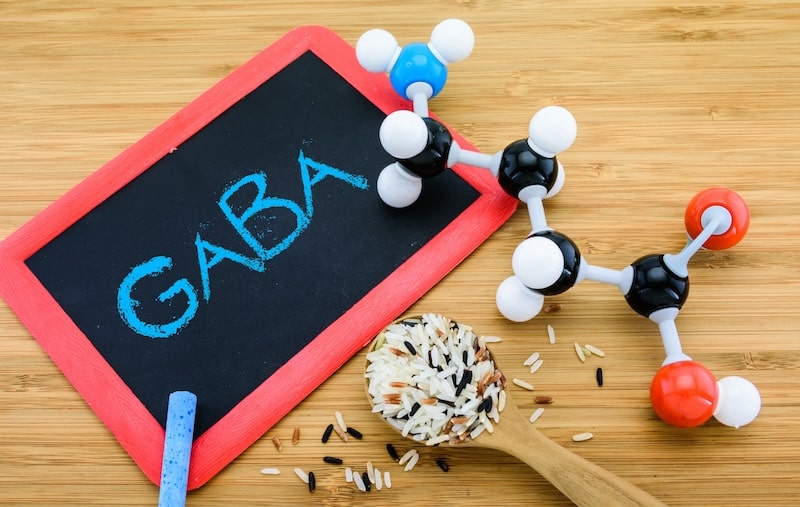GABA for Kids: Is GABA Safe for Kids to Use?
Parents today are increasingly exploring natural options to help their children manage sleep difficulties, anxiety, or hyperactivity, leading to growing interest in GABA for kids.
Gamma-Aminobutyric Acid (GABA) is a naturally occurring neurotransmitter that helps regulate brain activity and promote calmness by reducing neuronal excitability.
Some supplement companies now market GABA products as gentle, non-pharmaceutical aids for improving sleep quality and emotional balance in children.
However, while GABA plays a vital role in the brain’s relaxation system, research on its effectiveness and safety in children remains limited and inconclusive.
Scientists continue to debate whether orally ingested GABA can cross the blood-brain barrier in meaningful amounts, raising questions about its true impact on sleep and behavior.
Notably, a systematic review published in Frontiers in Neuroscience indicates that the evidence supporting the efficacy of oral GABA intake for improving sleep is very limited, highlighting the need for caution in considering GABA supplements for children (Hepsomali et al., 2020).
As with any supplement, parents should rely on evidence-based guidance and medical supervision before considering its use.
Understanding how GABA works, what the research says, and what safer, proven alternatives exist is essential before deciding whether using GABA for kids is appropriate for your family.
What is GABA?

GABA, or Gamma-Aminobutyric Acid, is a naturally occurring neurotransmitter in the brain that plays a pivotal role in regulating neuronal excitability throughout the nervous system.
It acts as the primary inhibitory neurotransmitter, which means it helps to calm neural activity.
By binding to GABA receptors in the brain, it reduces the firing of neurons, promoting relaxation and a sense of calm.
This function is essential in maintaining a balanced state of mental and emotional well-being.
GABA is produced in the body from glutamate, another neurotransmitter, and is crucial for maintaining a healthy balance between excitation and inhibition in the brain.
When the levels of GABA are optimal, it can help mitigate the effects of stress and anxiety, contributing to better sleep quality and overall mental health.
However, the effectiveness and safety of GABA supplements, particularly for children, require careful consideration and further research.
Why Do Parents Consider Using GABA for Kids?
Many parents turn to GABA for kids in search of natural solutions to help manage common childhood challenges such as poor sleep, anxiety, hyperactivity, or mood instability.
Because GABA is known as the brain’s primary inhibitory neurotransmitter, it naturally promotes relaxation and balance in the nervous system.
This reputation has led some to believe that supplementing with GABA could help calm an overactive mind or improve sleep onset in children.
The modern lifestyle has made these concerns more prevalent. Increased screen exposure, academic pressure, overstimulation, and reduced outdoor activity can all affect a child’s ability to relax and fall asleep at night.
As a result, parents are often drawn to natural sleep aids that appear gentler than pharmaceutical options such as melatonin or prescription sedatives.
GABA supplements are often marketed as “neurocalming”, “natural sleep aids,” or “stress-relief” formulas, suggesting they may help children unwind after a long day.
Some brands even combine GABA with ingredients like L-theanine, magnesium, or 5-HTP to increase relaxation and support healthy sleep cycles.
While these combinations may sound appealing, the actual evidence supporting their safety and efficacy in children remains limited.
For many families, the decision to try GABA for kids stems from a desire to avoid medication and develop better emotional balance through natural means.
However, it is essential to consult a pediatrician or licensed healthcare provider before introducing any supplement, as children’s developing nervous systems respond differently from adults.
Does GABA Help Kids Sleep?
The idea that GABA for kids can improve sleep is based on the neurotransmitter’s natural calming function in the brain.
GABA helps quiet neural activity, preparing the body for rest and supporting a smoother transition to sleep.
In theory, supplementing with GABA could support this process, especially in children who experience anxiety or restlessness before bedtime.
However, the current scientific evidence does not strongly support GABA supplements as an effective or proven sleep aid for children.
Most available studies on GABA and sleep have been conducted in adults, and even those show mixed results.
For example, a 2020 review in Frontiers in Neuroscience found that while some participants reported reduced stress and improved sleep quality, the overall evidence for oral GABA’s effectiveness remains limited and inconclusive (Hepsomali et al., 2020).
One key issue is bioavailability, as it’s unclear whether orally administered GABA can cross the blood-brain barrier in sufficient amounts to influence brain activity.
Some researchers suggest that any observed benefits may result from indirect effects, such as placebo responses or peripheral nervous system actions, rather than direct neurological impact.
For children, these uncertainties are even more significant.
Their developing brains are more sensitive to chemical influences, and no standardized pediatric dosing guidelines for GABA exist.
While anecdotal reports from parents occasionally describe improvements in sleep onset or nighttime calmness, others note paradoxical effects such as increased anxiety or irritability.
Regardless, getting consistent sleep is one of the most important health and fitness tips for children.
Since the scientific consensus remains limited, healthcare professionals generally recommend focusing on behavioral sleep strategies first (such as consistent bedtime routines, reduced screen exposure, and relaxation techniques) before considering supplements.
Until more research is available, GABA for kids should be viewed cautiously and only under professional supervision.
Safety Concerns: Is GABA Safe for Kids?
While GABA naturally occurs in the body and plays a crucial role in promoting relaxation, the safety of its supplementation, especially for young children, is not well-established.
Research on GABA supplements is still in its infancy, particularly concerning pediatric use.
Given the mixed results from existing studies, the potential for adverse effects remains a significant concern.
Potential side effects of GABA supplements include dizziness, nausea, and in some cases, a paradoxical increase in anxiety.
These effects can vary significantly from person to person, making it challenging to predict how a child might respond.
Additionally, GABA supplements may interact with other medications or underlying health conditions, further complicating their use in children.
Age-specific considerations are also critical.
Children’s developing brains and bodies may react differently to supplements compared to adults.
The appropriate dosage for children, if any, has not been clearly established, raising the risk of overuse or misuse.
Furthermore, the regulatory status and quality control of GABA supplements can vary widely.
Unlike prescription medications, dietary supplements are not always subject to rigorous testing for safety and efficacy.
This variability can lead to inconsistencies in product quality, making it even more challenging to ensure safe use in children.
Given my history with Tourette Syndrome, this reaction was particularly alarming.
The sensation was so uncomfortable that I had to leave my bed until the effects wore off.
This negative experience has led me to avoid GABA supplements entirely and to advise others to approach them with caution.
In my opinion, parents should be especially cautious and consult with healthcare professionals before introducing any new supplement into their child’s regimen.
Given the limited and mixed evidence on the effectiveness and safety of GABA for sleep, the potential risks outweigh the benefits.
Practical Tips for Improving Children’s Sleep

Improving children’s sleep often requires a combination of different approaches.
By implementing the right practical tips, parents can improve their children’s sleep without the need for supplements.
Fostering healthy sleep habits and creating a supportive sleep environment can lead to lasting benefits for children’s overall well-being and development.
I certainly won’t say my son is the best sleeper, but here are some practical, non-pharmacological strategies that can help, which have helped my son establish a consistent sleep schedule.
Consistent Bedtime Routine
A predictable bedtime routine helps signal to children that it is time to wind down and prepare for sleep.
This routine can include activities such as taking a warm bath, reading a book, or listening to calming music.
Consistency in these activities can create a sense of security and relaxation, making it easier for children to fall asleep.
Optimal Sleep Environment
Creating a sleep-conducive environment is crucial.
The bedroom should be dark, quiet, and cool.
Using blackout curtains can help block out light, while white noise machines can mask disruptive sounds.
Additionally, ensuring that the bed and bedding are comfortable can make a significant difference in the quality of sleep.
Limiting Screen Time
Exposure to screens before bedtime can interfere with the body’s natural sleep-wake cycle.
The blue light emitted by phones, tablets, and computers can inhibit the production of melatonin, a hormone that promotes sleep.
Limiting screen time at least an hour before bed can help children fall asleep more easily.
Regular Physical Activity
Engaging in regular physical activity during the day can help children expend energy and promote better sleep at night.
Activities such as playing outside, participating in sports, or even taking a family walk can contribute to better overall sleep patterns.
However, vigorous exercise should be avoided close to bedtime, as it can have a stimulating effect.
Balanced Diet
A balanced diet plays a role in sleep quality.
Foods rich in tryptophan, magnesium, and calcium can support the production of sleep-promoting hormones.
Providing a light snack before bed, such as a banana or a small glass of milk with honey, can help children feel more relaxed and ready for sleep.
For kids who like “snacks,” Hippeas Chickpeas Puffs are a healthy option that tastes great and contains a significant amount of tryptophan.
It’s important to avoid caffeine and sugary foods, especially in the evening, as they can interfere with sleep.
Managing Stress and Anxiety
Children, like adults, can experience stress and anxiety that affects their sleep.
Teaching children relaxation techniques such as deep breathing, progressive muscle relaxation (my favorite option), or guided imagery can help them manage anxiety and feel more at ease at bedtime.
Creating a calm and supportive atmosphere can also alleviate bedtime worries.
Final Thoughts: Should Kids Use GABA Supplements?
Given the current research, GABA for kids remains an area of uncertainty.
Although GABA plays an essential role in calming the brain and promoting healthy sleep patterns, the evidence supporting oral GABA supplements for children is extremely limited.
Most studies have been conducted on adults, with inconsistent results and no long-term data on pediatric safety.
While some parents have reported mild improvements in their child’s ability to relax or fall asleep, others, myself included, have experienced adverse reactions such as heightened anxiety or discomfort.
These mixed experiences highlight the unpredictability of supplementing with a neurotransmitter that directly affects brain chemistry.
Because children’s nervous systems are still developing, even small alterations in neurochemical balance can have unintended effects.
Without clear dosing standards or robust pediatric trials, GABA supplementation in kids cannot be considered evidence-based or risk-free.
Parents seeking natural sleep or anxiety solutions for their children should first emphasize foundational habits: regular physical activity, balanced nutrition, structured bedtime routines, and emotional regulation techniques.
These interventions are safer, sustainable, and well-supported by research on childhood sleep health.
If a parent is still considering GABA for kids, consultation with a pediatrician, neurologist, or licensed nutrition professional is crucial.
A healthcare provider can help evaluate whether other underlying factors, such as anxiety, nutrient deficiencies, or poor sleep hygiene, are contributing to the problem.
In short, while GABA is an important neurotransmitter for relaxation and mental balance, current evidence does not justify using GABA supplements for children.
Until high-quality, long-term research emerges, parents are best served by focusing on lifestyle, behavioral, and environmental strategies that naturally promote restorative sleep and emotional well-being.
This website does not provide medical advice. This website site does contain affiliate links, and purchases may earn a commission.
Read my Medical Disclaimer, Review Disclaimer, and Publishing Policies for more details. Use of this site indicates acceptance of these terms.



